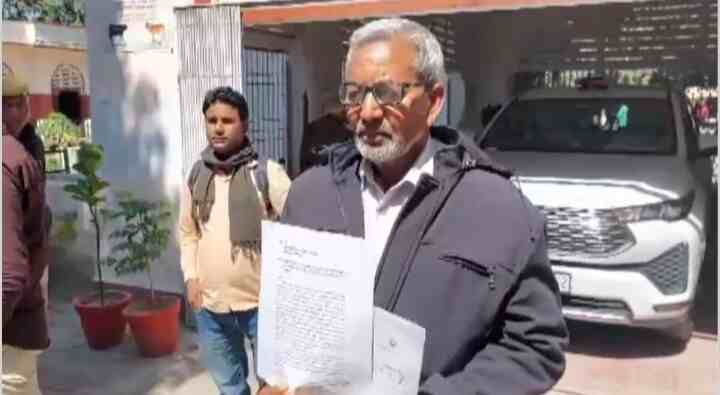As we step back in time to the tumultuous era of 1947, a pivotal question emerges: Did Mahatma Gandhi play a decisive role in the partition of India and Pakistan? This inquiry delves into the intricate web of political dynamics between India and Britain during this watershed moment in history.
The Political Chessboard of 1947
Heading

In the aftermath of World War II, the political landscape of the Indian subcontinent was charged with fervor. The British Empire, weary and weakened by the war, faced mounting pressure for decolonization. Against this backdrop, Mahatma Gandhi, the symbol of India’s nonviolent struggle for independence, was a prominent figure.
The Role of Mahatma Gandhi

Gandhi, with his philosophy of nonviolent resistance, was instrumental in galvanizing the Indian masses against British rule. However, attributing the entire partition to him is a nuanced exploration. While his influence was undeniable, geopolitical forces and power dynamics played equally crucial roles.
Geopolitical Forces at Play | British Colonial Agenda

The British Empire, grappling with post-war challenges, sought to recalibrate its global presence. The partition, in part, served their strategic interests. It allowed the British to maintain influence and control through a divided subcontinent.
Communal Tensions
Deep-seated religious and communal tensions between Hindus and Muslims further complicated the situation. Leaders beyond Gandhi, representing diverse interests, navigated this minefield of complexities.
The Twists and Turns of Political Negotiations | Congress and Muslim League Dynamics
The Indian National Congress, led by figures like Jawaharlal Nehru, and the Muslim League, spearheaded by Muhammad Ali Jinnah, were key players. Their negotiations with the British determined the fate of the subcontinent.
Mountbatten’s Role
Lord Louis Mountbatten, the last Viceroy of India, played a pivotal role in orchestrating the partition. His decisions and strategies shaped the course of history.
Contrasting Perspectives on Gandhi’s Influence | Proponents of Gandhi’s Role
Supporters argue that Gandhi’s unwavering commitment to nonviolence pressured the British to hasten the process of independence and, consequently, the partition.
Critics and Alternative Narratives
Critics contend that attributing the partition solely to Gandhi oversimplifies a complex historical event. They emphasize broader geopolitical factors and the influence of other leaders.
The Legacy of 1947: A Divided Subcontinent
As the ink dried on the Independence Act of 1947, India and Pakistan emerged as two separate nations. The consequences of this partition reverberate through the region’s history, leaving an indelible mark on its people.
In the tapestry of India’s struggle for independence, Mahatma Gandhi’s role is significant, but it is essential to view it within the broader context of geopolitical forces and the actions of other influential leaders. The partition of India and Pakistan was a complex interplay of historical, political, and communal factors, shaping the destiny of nations.
FAQs
1. Q: Was Mahatma Gandhi the sole architect of the partition?
A: No, while Gandhi’s influence was substantial, the partition resulted from a confluence of geopolitical, communal, and leadership dynamics.
2. Q: What role did Lord Mountbatten play in the partition?
A: Lord Mountbatten, as the last Viceroy of India, played a crucial role in orchestrating the partition and shaping its terms.
3. Q: How did communal tensions contribute to the partition?
A: Deep-seated religious and communal tensions between Hindus and Muslims heightened the complexities leading to the partition.
4. Q: Were there alternative narratives to Gandhi’s influence?
A: Yes, critics argue that attributing the partition solely to Gandhi oversimplifies a complex historical event. Other leaders and geopolitical factors played vital roles.
5. Q: What were the consequences of the partition on the region?
A: The partition left a lasting impact, shaping the history and geopolitics of South Asia, with India and Pakistan emerging as separate nations.
Conclusion: Unraveling the Threads of History
In the annals of history, the partition of India and Pakistan stands as a poignant chapter. Mahatma Gandhi’s legacy intertwines with broader political currents, reflecting the complexities of a nation’s journey to independence.





